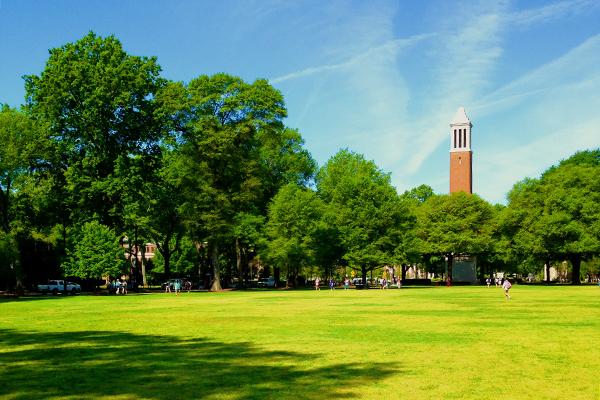Two weeks ago, The Crimson White Editorial Board published a special First Amendment edition that focused on free speech at The University of Alabama, indicting specifically the University’s Grounds Use Permits and the ways in which they can be applied. The Foundation for Individual Rights in Education ranked The University Alabama among the top 10 worst universities for free speech in 2013.
“The University of Alabama attaches great value to freedom of speech and open debate, but it also attaches great importance to the principles of civility and respect that govern an academic community,” said Deborah Lane, vice president of university relations, in response to the special edition.
“Enforcing time, place and manner restrictions on a public space that has historically been used as a public forum violates the Constitution and goes against the free exchange of ideas that constitutes a place of higher education,” said the CW Editorial Board, citing examples of various free-speech clashes.
The board offered, for example, an incident where, in April 2013, the University blocked the Alabama Alliance for Sexual and Reproductive Justice’s counter-protest to a Bama Students for Life “Genocide Awareness Project,” which featured signs of aborted fetuses on the Quad.
The University blocked the counter-protest on the grounds that Bama Students for Life had obtained a GUP, whereas AASRJ had not.
“The Supreme Court has long recognized that any speech and assembly is subject to reasonable restrictions of time, place and manner,” Lane said. “For example, it would not be appropriate for someone to disrupt a math class to protest political events, for someone to yell ‘fire’ in a crowded auditorium or for a group to schedule a loud concert on the Quad during finals.”
The University changed its GUP application process in July 2013, allowing for an expedited application process for demonstrations in response to recent or “immediate” news events. The University policy states that applicants under this category can usually expect a response within 24 hours, though the permit process requires coordination of many separate entities, such as Grounds, UAPD, Transportation, Legal Counsel, Auxiliary Services, Health and Safety, Risk Management and, when appropriate, Student Affairs or a particular dean.
The Editorial Board acknowledged this change, but argued that certain areas like the Quad are public in nature and should not always require a GUP, and that even expedited responses do not guarantee a right to assemble.
“When considering reasonable time, place and manner considerations, UA’s objectives are to ensure the safety and security of the campus community and to maintain the University’s ability to educate its students and conduct its daily operations,” said Lane, explaining the University’s belief that GUPs are necessary for normal operations to continue.
The University did not comment on whether or not it anticipates changing its current GUP policy any time in the near future. The University did not make the 2014 FIRE list for on-campus free speech violations.









